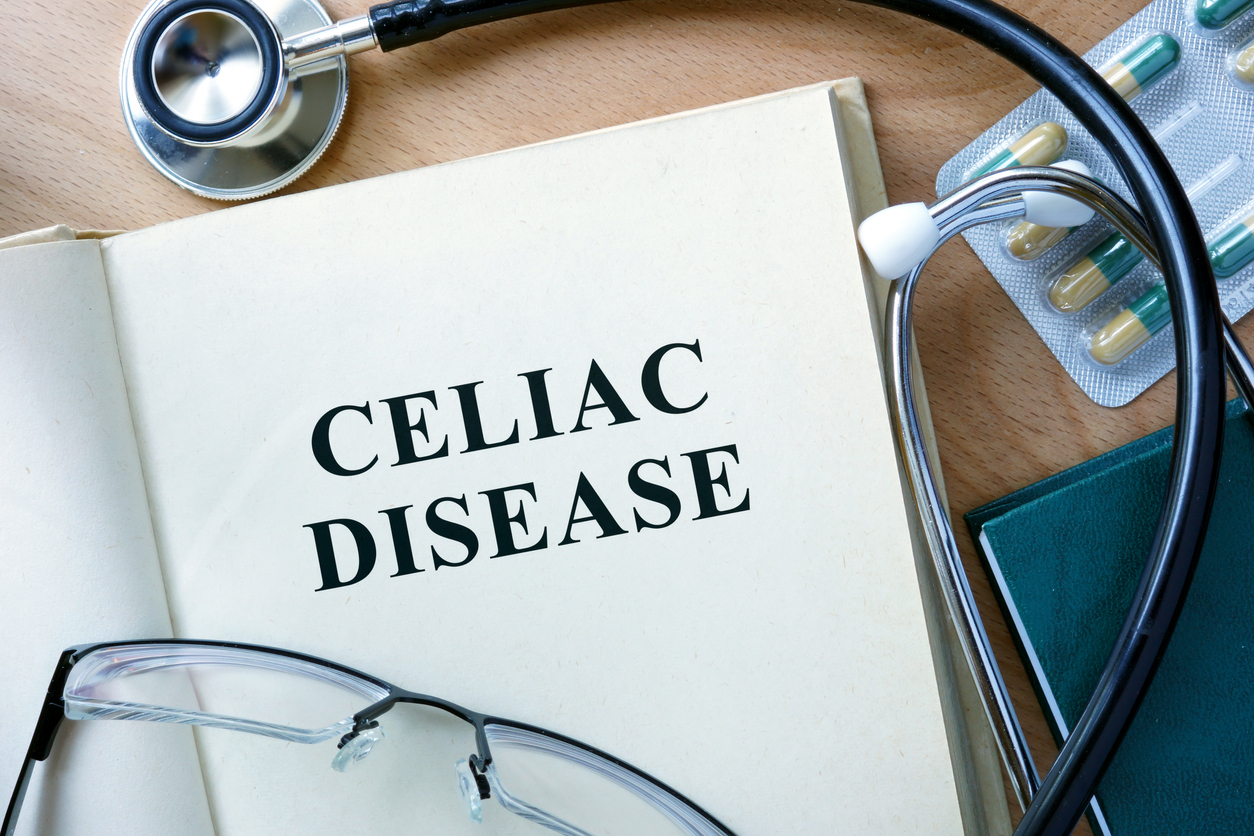Commitment + Clinical Leadership = Better Outcomes

What is Celiac Disease?
Did you know that celiac disease affects roughly every 1 in 100 people worldwide? Millions of people with celiac disease go undiagnosed, which can lead to long-term health complications such as coronary artery disease or small bowel cancers.1
Here are some facts about celiac disease, how to recognize it, and how you can help support and spread awareness this month.
What is Celiac Disease?
Celiac disease is an autoimmune disease that occurs when an individual’s immune system has a negative reaction to gluten, which then causes damage to the small intestine.2 Gluten is a protein that is found in wheat, barley, and rye. It acts as an adhesive that holds food together.3
The body has an immune response that attacks the small intestine and leads to damage on the villi, which are small fingerlike projections inside the small intestine wall.1 When villi are damaged, it affects how our bodies absorb nutrients.
When celiac disease goes untreated, the villi are damaged and most likely not absorbing nutrients as efficiently as they should be on a daily basis.
Causes and Symptoms of Celiac Disease
Causes
Celiac disease is genetic, which means it runs in families. If a close family member such as a parent or sibling has celiac disease, then you have a 1 in 10 chance of having the disease.4
Celiac disease can also be triggered if an individual has another autoimmune disease or genetic disorder. Some conditions that are commonly associated with celiac disease include:
- Lupus
- Type 1 Diabetes
- Thyroid disease
- Down syndrome
- Lactose intolerance
Symptoms
Celiac disease can affect each individual who has it differently. Symptoms vary from person to person, and some may not experience any symptoms.
With celiac disease, symptoms may vary for different reasons including the age an individual started eating gluten or the amount of gluten that they eat.
According to Healthline Media, here are some common symptoms of celiac disease5:
- Weight loss
- Vomiting
- Constipation
- Abdominal pain or bloating
Although there are certain symptoms that are known to be associated with celiac disease, there are more symptoms that adults may experience, such as:
- Joint pain
- Weak bones
- Fatigue
- Seizures
- Iron-deficiency anemia
If you experience any of these symptoms or are at risk for celiac disease, talk to your doctor or a trusted medical professional.
Diagnosis and Treatment
Diagnosis
More than 80% of individuals with celiac are undiagnosed or misdiagnosed.6
When diagnosing someone with celiac disease, doctors will consider the individual’s family medical history because it is genetic.
A blood test can be performed to diagnose celiac disease, and this is the most reliable when the individual has gluten in their diet.
If you are expecting to get tested for celiac disease, it is best to eat a diet that includes gluten for the most accurate diagnosis.
Treatment
There is currently no medicine or cure for celiac disease. The only treatment is to remove gluten from the diet. This allows the villi in the small intestine to heal and ensures that nutrients can be absorbed properly.
Gluten can be found in baked goods such as breads, pasta, and cereal. However, gluten can be found even in foods that people do not realize, such as dairy products or sauces.
Because gluten is so common, it is critical to check packaging and labels to be sure whether or not the product contains gluten and can affect someone with celiac disease.
Doctors educate their patients with celiac disease and help them with suggestions for following a gluten-free diet, as well as teach them to thoroughly check food labels and ingredients for gluten.
Here are some of the foods to avoid unless the label says gluten-free5:
- Bread
- Cake
- Cereals
- Cookies
- Oats
- Pasta
- Processed lunch meats
- Dressings
If you have any questions about what you can and cannot eat with celiac disease, talk to a dietitian.
How to Help Those with Celiac Disease
When it comes to supporting those with celiac disease, there are many ways to help. Here are some ways you and your family can start getting involved to help those in need.
Spread Awareness
One way you can help people with celiac disease is by spreading awareness. Talk to others about what you’ve learned about celiac disease, including symptoms, and share articles about it on social media.
Spreading awareness could potentially help someone who has celiac disease but does not know the signs or symptoms.
Fundraise
There are many organizations that fundraise for research and programs for people with medical conditions such as celiac disease. Here are some options for organizations that specialize in helping those with celiac disease:
- Beyond Celiac – Beyond Celiac is a patient advocacy organization working to advance research and discover new treatments. You can also register for their virtual walk/run event. Click here to sign up.
- Celiac Disease Foundation – Founded in 1990, the Celiac Disease Foundation funds and supports initiatives including medical research, patient and provider healthcare education, and public policy advocacy.
- National Celiac Association – A non-profit organization to help educate people and advocate for those with celiac disease.
Visit the Celiac Disease Foundation website for more ideas on how to get involved in this cause.
Saber Healthcare is an organization dedicated to providing consultant services to long term care providers. This article is for informational purposes and is not meant to be seen as professional advice. Please consult with a medical expert before relying on the information provided.
Sources:
- https://celiac.org/about-celiac-disease/what-is-celiac-disease/
- https://www.medicalnewstoday.com/articles/38085
- https://celiac.org/gluten-free-living/what-is-gluten/
- https://www.webmd.com/digestive-disorders/celiac-disease/celiac-disease.
- https://www.healthline.com/health/celiac-disease-sprue.
- https://www.beyondceliac.org/celiac-disease/facts-and-figures/
